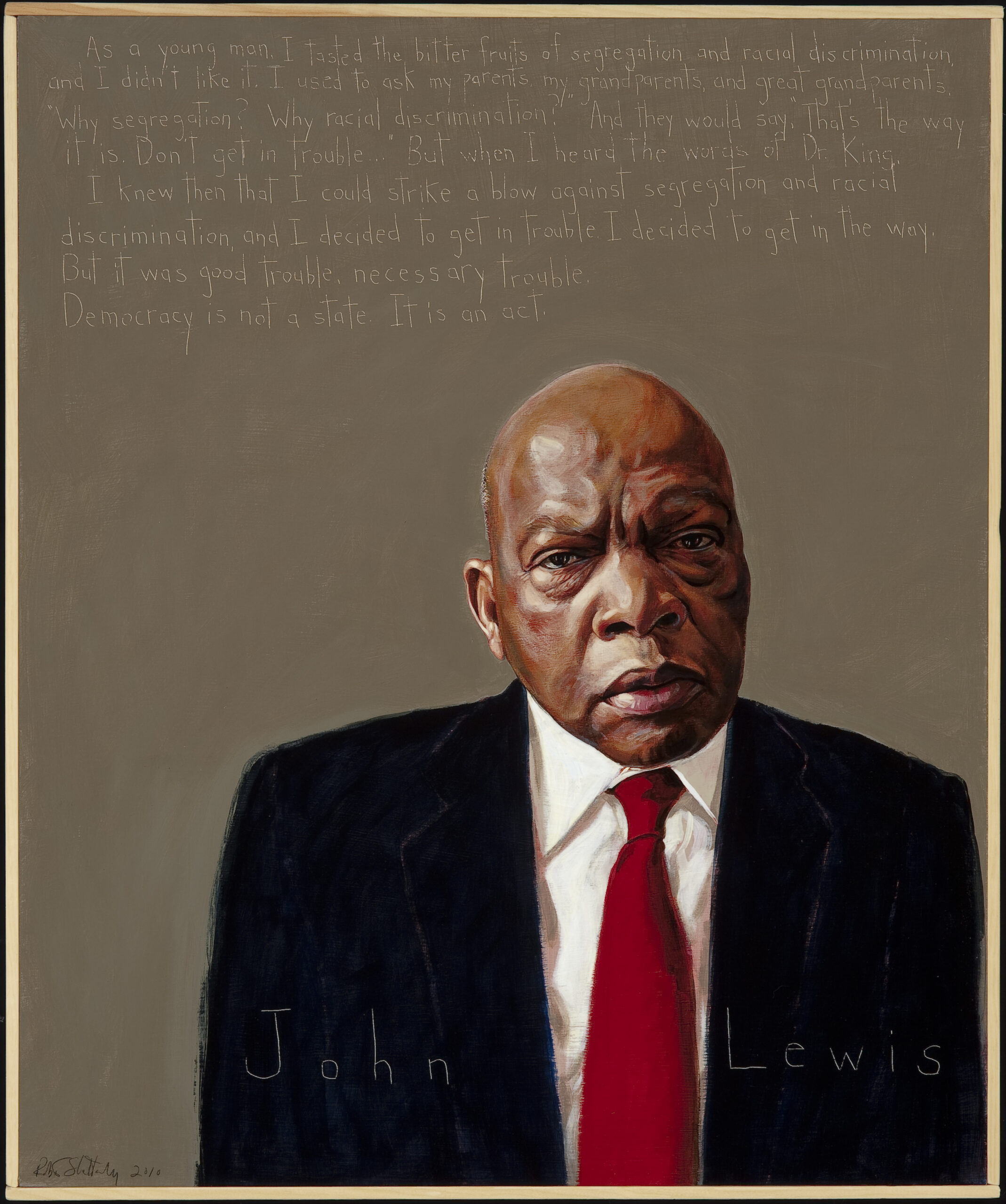
Celeste Ng: Exploring Hope in Dystopian Literature
admin
- 0
Celeste Ng, a prominent voice in contemporary literature, has garnered acclaim for her ability to weave intricate narratives that reflect the complexities of identity and belonging. In her latest novel, “Our Missing Hearts,” Ng delves deep into dystopian literature, exploring the intersection of political themes and personal experiences. The story follows a biracial child and his Chinese American mother as they navigate a future where patriotism has dire consequences, showcasing Ng’s talent for portraying Asian American characters in compelling ways. As a profound Asian American author, she not only highlights the tensions inherent in cultural identity but also captures the urgency of socio-political issues, resonating powerfully with readers today. Through fresh and thought-provoking explorations, Ng continues to inspire discussions on the nuanced struggles people face in a rapidly changing world.
In the ever-evolving landscape of modern storytelling, Celeste Ng stands out for her unique ability to fuse personal narratives with broader societal concerns. Her work serves as a critical commentary on contemporary issues, particularly within dystopian settings that reflect an unsettling reality. “Our Missing Hearts” invites readers to engage with provocative themes that extend beyond mere fiction, resonating deeply with issues of identity, family dynamics, and cultural conflict. As an influential figure amongst Asian American writers, Ng emphasizes the importance of diverse voices in literature, challenging stereotypes while advocating for greater representation. In exploring these intricate themes, she transcends traditional storytelling, crafting a narrative that speaks to both the heart and the mind.
The Emergence of Dystopian Themes in Celeste Ng’s Work
Celeste Ng’s exploration of dystopian themes in her novels, particularly in “Our Missing Hearts,” reflects a growing concern in society about the ramifications of political climates on personal lives. Dystopian literature often serves as a mirror to reality, allowing readers to engage with uncomfortable truths through the lens of fiction. Ng’s narrative delves into a future where ethnic and cultural identities face grave scrutiny, echoing contemporary issues such as systemic racism and the stripping away of personal freedoms. This blend of personal and political threads is not merely a narrative technique but serves as a call to reflect on our current societal trajectory.
The significance of Ng’s work lies in her ability to draw parallels between her fictional worlds and our present day. Her artistic expressions are imbued with undertones of activism, encouraging readers to acknowledge the fragility of their own societal constructs. By centering on Asian American characters navigating these challenges, she not only adds depth to her storytelling but also immerses her audience in the realities faced by marginalized communities. These themes resonate powerfully, prompting discussions within the literary community about the role of fiction in critical social discourse.
Political Themes in Fiction: A Reflection of Our Reality
Ng’s “Our Missing Hearts” intricately weaves political themes into its narrative, presenting a cautionary tale that resonates with the current climate of division and fear. In recent years, works of fiction have increasingly taken on political significance, where authors like Ng craft stories that challenge the status quo and provoke thought. The intertwining of personal struggles within political contexts invites readers to contemplate the impact of policy decisions on everyday lives, particularly for vulnerable populations affected by discrimination and prejudice. This fusion of the personal and political narrative creates a space for empathy and understanding, breaking down barriers between individuals.
Through her writing, Ng emphasizes the importance of dialogue surrounding political issues, all while offering a glimpse into the internal lives of her characters. These narratives serve not merely as reflections on societal issues but also as invitations for readers to engage in conversations about justice and equity. The emotional depth she provides helps to humanize what may be perceived as abstract political issues, making them more relatable. This approach resonates with many readers, encouraging them to consider their roles in advocating for change within their communities, thus demonstrating the transformative power of literature.
Asian American Heroics in Contemporary Literature
In a field where Asian American authors have historically been underrepresented, Celeste Ng stands out, showcasing stories that highlight the complexities of multicultural identities. Her characters embody resilience amid adversity, often confronting societal prejudices and personal dilemmas that shape their experiences. Within the broader realm of contemporary literature, Ng’s narratives serve to redefine heroism, portraying her characters not just as victims of their circumstances but as drivers of change who challenge societal norms and expectations. This portrayal offers a fresh perspective on what it means to be a hero in today’s world, particularly for those belonging to cultural minorities.
Furthermore, Ng’s work contributes to a larger dialogue about representation in literature, as it underscores the necessity for diverse narratives that encompass a wide range of experiences. Readers are invited to grapple with the dualities of identity, as seen in the characters of “Our Missing Hearts,” each navigating their paths within a world rife with complexity. By creating rich, multidimensional characters who face real-world issues, Ng not only entertains but also enlightens readers, fostering a greater understanding of the Asian American narrative. This approach encourages readers to reflect on the importance of authenticity in storytelling, ultimately enriching the literary landscape.
The Role of Fiction in Humanizing Crisis
Celeste Ng asserts that fiction serves a crucial role in providing a voice during times of crisis. In “Our Missing Hearts,” she utilizes her narrative to illuminate the overlooked narratives of those impacted by socio-political turmoil. Through storytelling, she opens up pathways for empathy, granting readers insight into the struggles faced by individuals deemed ‘other’ by society. The emotional connection formed through her characters allows audiences to confront uncomfortable realities, thereby humanizing issues often reduced to statistics in mainstream discourse.
Additionally, Ng’s incorporation of resistance art within her fiction stands as a powerful commentary on the role of creativity in activism. As she underscores, art provides an avenue for both reflection and action, urging readers to engage with pressing social issues. By foregrounding the complex relationship between art and political resistance, Ng illustrates how narratives can inspire not just awareness but also a collective response. This conversation about the intersection of creativity and activism emphasizes the importance of literary engagement in fostering a more just world.
Celeste Ng’s Personal Experiences Shaping Her Narrative
The personal is inherently political in Celeste Ng’s writings, particularly evident when exploring her motivations behind “Our Missing Hearts.” Ng’s own experiences as a mother and her reflections on her son’s mixed-race identity significantly inform the narrative’s core themes. The feeling of distance and potential separation resonates deeply with many families, especially in today’s context where such anxieties have been amplified. By infusing her personal realities into her storytelling, Ng creates a poignant narrative that invites readers to consider their familial bonds amidst societal pressures.
Moreover, Ng’s focus on her identity as a Chinese American woman enables her to articulate the nuances of cultural heritage and its implications on familial dynamics. This allows for a broader exploration of Asian American identity within the framework of her work, showing how personal stories can encapsulate larger socio-political themes. Ng’s candid reflections reveal not only the struggles but also the beauty of navigating her cultural identity, fostering a deeper understanding among readers and calling attention to the collective experiences shared within the Asian American community.
Impact of Cultural Identity in Celeste Ng’s Narratives
Cultural identity plays a significant role in shaping the narratives crafted by Celeste Ng, reflecting both the struggles and triumphs of Asian American experiences. In works like “Our Missing Hearts,” Ng explores the tension between cultural heritage and societal expectations, showcasing how these elements influence characters’ lives and decisions. Her portrayal of individuals grappling with their identity offers readers an intimate glimpse into the complexities of living in a multicultural society, where the desire for acceptance often conflicts with the need to stay true to oneself.
Furthermore, Ng’s eloquent storytelling highlights how cultural identity can become a source of strength amidst adversity. Throughout her novels, characters demonstrate resilience, drawing upon their cultural roots to navigate challenging circumstances. This aspect of her writing affirms the richness of Asian American narratives, encouraging readers to appreciate the diverse experiences that shape individual identities. In this way, Ng contributes significantly to the conversation about representation, as her work champions the importance of diverse voices within the literary landscape.
The Emotional Resonance in Ng’s Literature
The emotional landscape within Celeste Ng’s literature is intricately designed to resonate with readers on a profound level. By delving into the personal struggles of her characters, she creates stories that encapsulate universal themes of love, loss, and the quest for understanding. Ng’s ability to convey complex emotions through her prose compels readers to engage reflectively, drawing parallels between the fictional struggles depicted in “Our Missing Hearts” and their own life experiences. This emotional connection not only enriches the reader’s experience but also reinforces the importance of empathy in understanding diverse perspectives.
In addition to emotional depth, Ng’s narratives encourage readers to confront uncomfortable truths, challenging them to engage with societal issues that might otherwise be overlooked. By inviting audiences to feel alongside her characters, she creates a space where readers can process their responses to themes of injustice and resilience. Ng exemplifies the power of literature to evoke action and reflection, ultimately fostering a more engaged readership that sees fiction as a catalyst for change.
Responses to Ng’s Vision of Dystopia
Critics and readers alike have pointed out how Celeste Ng’s portrayal of dystopia in “Our Missing Hearts” reflects a growing concern over contemporary societal trends. Many have expressed a sense of urgency to address the issues she raises about nationalism, identity, and the erasure of cultural voices. Ng’s speculative world feels alarmingly prescient, as her depiction of a future where art is suppressed serves as a chilling reminder of the fragility of freedom in the current geopolitical landscape. This response highlights the critical need for dialogue around the implications of such policies today.
Moreover, Ng’s novel has sparked discussions about the role of literature as a form of resistance against oppressive systems. Readers have acknowledged how the emotional weight of Ng’s storytelling can motivate individuals to stand against injustices in their own communities. By bridging the gap between fictional dystopia and reality, Ng encourages a collective consciousness that challenges complacency and inspires action. The thematic depth of her work not only captivates readers but also empowers them to become advocates for change, amplifying the message that art can lead to hope and solidarity in times of turmoil.
Narrative Techniques in Celeste Ng’s Writing
Celeste Ng employs a variety of narrative techniques that enhance the emotional resonance and thematic depth of her stories. Through her use of multiple perspectives and rich character development, Ng invites readers into the inner lives of her characters, revealing their complexities and vulnerabilities. In “Our Missing Hearts,” she masterfully combines personal narratives with broader social critiques, allowing the exploration of identity, belonging, and loss. This approach not only engages readers but also prompts them to consider their own biases and assumptions about cultural and ethnic identities.
Additionally, Ng’s literary style—characterized by careful pacing and lyrical prose—creates an immersive reading experience that captivates audiences. Her attention to detail encourages readers to invest emotionally in her characters’ journeys, making the impact of their experiences all the more profound. As a result, her narratives transcend mere storytelling; they become vehicles for reflection and understanding. By employing these techniques, Ng reinforces the importance of nuanced representation in literature, ensuring that diverse stories reach a wide audience and inspire critical conversations.
Frequently Asked Questions
What themes does Celeste Ng explore in ‘Our Missing Hearts’?
In ‘Our Missing Hearts’, Celeste Ng delves into themes of motherhood, identity, and political tensions in a dystopian society. The novel portrays a Chinese American mother and her biracial son navigating a future where behaviors deemed unpatriotic have dire consequences. Through Ng’s lens, the story highlights the struggles of Asian American characters and the impacts of societal pressures on personal relationships.
How does Celeste Ng incorporate personal experiences into her writing?
Celeste Ng often weaves her personal experiences into her narratives, as seen in ‘Our Missing Hearts’. Ng, a mother herself, draws from her own feelings of guilt and familial connection to create relatable characters and circumstances. Although her work is fiction, her life influences the emotional depth in her storytelling, allowing readers to connect with the diverse experiences of Asian American families.
What is the significance of political themes in Celeste Ng’s fiction?
Political themes are central to Celeste Ng’s fiction, particularly in ‘Our Missing Hearts’. Ng examines the intersection of personal and political lives, addressing societal issues such as racism, censorship, and familial separation. Her stories compel readers to reflect on current events and historical contexts, emphasizing the importance of understanding and confronting political realities through the lens of personal relationships.
How does ‘Our Missing Hearts’ reflect current societal issues?
Celeste Ng’s ‘Our Missing Hearts’ mirrors contemporary societal issues, particularly those affecting Asian Americans and immigrant communities. The novel’s dystopian setting, where art and literature are censored, resonates with real-world dynamics of discrimination and prejudice, especially highlighted during the COVID-19 pandemic. Ng’s work serves as a cautionary tale, urging readers to recognize and challenge the political landscape impacting minority groups.
What makes Celeste Ng a prominent Asian American author?
Celeste Ng’s prominence as an Asian American author stems from her ability to explore complex themes of identity, belonging, and societal pressure in her work. Her novels, including ‘Our Missing Hearts’ and ‘Little Fires Everywhere’, showcase rich narratives centered on Asian American experiences, making important contributions to contemporary literature. Ng’s storytelling highlights the diversity within Asian identities while addressing systemic issues faced by minority groups.
What role does art play in Celeste Ng’s writings?
In her writings, including ‘Our Missing Hearts’, Celeste Ng emphasizes the transformative power of art. She suggests that fiction can evoke empathy and inspire action, particularly in times of political turmoil. Ng believes that literature can provide a critical space to process emotions and engage readers in discussions about societal issues, pushing them toward reflection and understanding.
How does Celeste Ng address the concept of tokenism in her work?
Celeste Ng confronts the issue of tokenism in her interviews and writings by advocating for the representation of diverse Asian American stories. She emphasizes that there is no singular narrative that encapsulates the experiences of all Asian Americans. Instead, her work strives to present authentic portrayals of Asian identities that are interwoven with broader human experiences, challenging stereotypes and expanding the understanding of Asian American literature.
| Key Point | Details |
|---|---|
| Dystopian Themes | Celeste Ng’s upcoming novel, ‘Our Missing Hearts,’ reflects on motherhood and societal issues, echoing her fears of current political climate resembling a dystopia. |
| Personal Inspiration | Ng based the narrative on personal experiences, particularly her relationship with her son, and reflects on the complexities of parental sacrifice. |
| Cultural Representation | The novel addresses the experiences of Asian Americans, illustrating the tension between societal expectations and personal identity. |
| Political Commentary | Ng discusses the rise of anti-Asian sentiment during the pandemic and aims to highlight these biases through her narrative. |
| Art and Resistance | She believes literature can provide emotional insight and foster change, positioning fiction as a tool for empathy and awareness. |
| Creative Process | Her writing is described as evolving through questioning and personal reflection, valuing deep engagement over reliance on technology. |
| Hopeful Message | Ultimately, Ng hopes ‘Our Missing Hearts’ serves as an inspiring narrative that encourages hope amidst chaos. |
Summary
Celeste Ng’s exploration of complex themes in her latest work, ‘Our Missing Hearts,’ showcases her ability to intertwine the personal with the political. Through her storytelling, Ng not only addresses significant cultural and societal issues but also invites readers to reflect on their own experiences and the current state of the world. In a time where many feel disheartened, her narrative serves as a beacon of hope, reminding us of the power of literature to bridge divides and spark important conversations.

